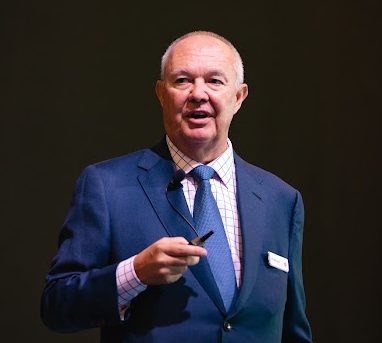Unraveling the Threads of Unity and Division in American Politics
February 24, 2025
The toxicity of today’s political discourse has a way of amplifying our differences, yet beneath the clamor lie common bonds that unite us. As the nation grapples with contentious debates, it’s worth reflecting on what most Americans agree on, where sharp divides persist, and how certain trivial obsessions are being weaponized to further polarize our society.
Things That Most Americans Agree On
BY JOE WALLACE
FEBRUARY 24, 2025
Across the diverse political spectrum, many core values resonate with the majority of Americans. At the heart of our shared beliefs is a commitment to fundamental principles: the desire for personal freedom, the protection of individual rights, and the pursuit of a safe and prosperous life. Whether in small-town communities or sprawling urban centers, citizens express common aspirations such as:
- Family and Community Well-Being: Nearly everyone values the importance of strong families, safe neighborhoods, and quality education. These concerns drive community efforts—from local volunteer groups to school board meetings—demonstrating a collective investment in a better future for our children.
- Justice and Fairness: There is widespread support for the rule of law and the idea that every individual, regardless of background, deserves fair treatment. This shared ideal underscores calls for justice reforms and equal opportunity.
- Patriotism and Respect for Traditions: While expressions of patriotism can vary, there is a general consensus on honoring those who have served the country and upholding certain national traditions. This respect often manifests in community celebrations, remembrance events, and bipartisan support for veterans.
These unifying themes remind us that even amid fierce debates, a significant part of the national conversation is rooted in values that most Americans hold dear.
Things That Most Americans Do Not Agree On
Despite these shared ideals, Americans remain divided on many pressing issues. The debates are not simply about differing opinions; they reflect contrasting visions for the nation’s future. Key areas of contention include:
- Healthcare and Economic Policy: Disagreements over the role of government in providing healthcare, regulating taxes, and addressing economic inequality have created enduring partisan divides. While some advocate for expansive social programs and wealth redistribution, others champion free-market solutions and minimal state intervention.
- Social Issues: Topics such as immigration, gun control, and environmental policies reveal profound ideological rifts. These debates are often charged with emotion and shaped by differing historical experiences and cultural narratives.
- Government and Individual Rights: Divergent views on the balance between national security and personal freedoms, or the extent of government oversight in daily life, further illustrate the polarization. For many, these debates are not merely policy discussions but battles over identity, authority, and the nature of progress.
These disagreements illustrate that while the foundation of American values is shared, the methods and policies to achieve a common good remain highly contested.
Divisions Fueled by Trivial Obsessions
In today’s media landscape, certain issues—often of minor importance—have been amplified into battlegrounds of cultural warfare. These controversies, though seemingly trivial, have become potent symbols in the fight for political dominance:
- Symbolic Controversies: From debates over the placement of statues to disputes over the interpretation of historical symbols, these issues often serve as stand-ins for larger ideological conflicts. The focus on such symbolic gestures can distract from substantive policy discussions.
- Sensationalism in the Digital Age: Social media platforms and 24-hour news cycles thrive on controversy. This environment encourages the elevation of sensational issues—such as minor missteps by public figures or fleeting cultural trends—that, while emotionally charged, do little to address long-term challenges like infrastructure or education reform.
- The Weaponization of Distraction: Political actors sometimes deliberately spotlight inconsequential matters to rally their base or to divert attention from more consequential debates. This strategic focus on peripheral issues intensifies divisions and stokes a toxic rhetoric that undermines constructive dialogue.
By fixating on these less critical matters, the political narrative shifts away from actionable policies and the essential work of uniting a diverse populace around common goals.
Moving Forward
Recognizing both our shared values and our differences is a crucial step toward healing the political divide. While disputes over policy and ideology are inevitable in any democracy, the disproportionate focus on trivial matters only deepens the fractures within our society. The challenge lies in reclaiming the space for meaningful conversation—a dialogue that acknowledges our common humanity and channels our collective energy into solving the real issues that affect our daily lives.
In a time when toxic rhetoric too often overshadows genuine engagement, it is vital to remind ourselves of the values that bind us. By embracing our shared aspirations for family, fairness, and freedom, we can begin to bridge the divides and work together toward a future where differences are discussed, not weaponized, and where every American has the opportunity to thrive.





